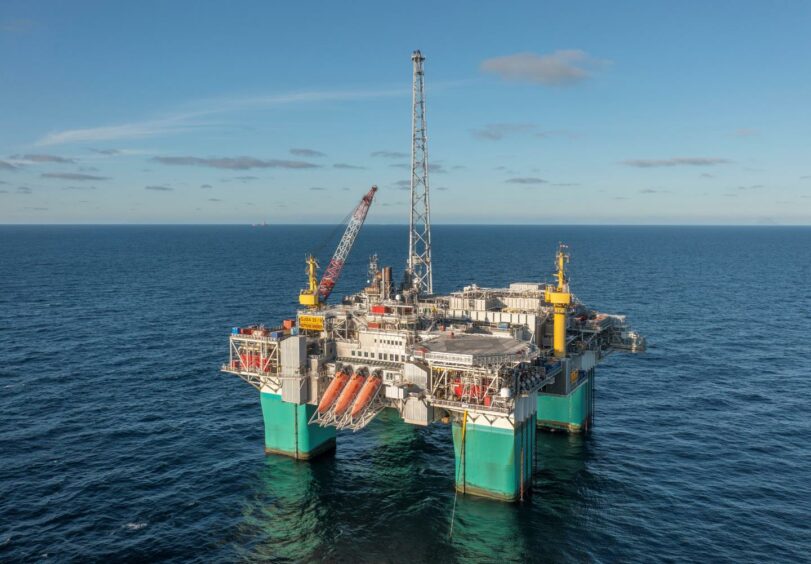
The UK’s offshore energy sector said it is reviewing controls in response to heightened security worries across the North Sea, but stressed it had no immediate concerns.
In a briefing on Thursday representatives from Offshore Energies UK (OEUK) said the organisation had no immediate security concerns in the wake of heightened geopolitical tensions, but that it would continue to engage with government and industry representatives to co-ordinate any response.
It comes as a series of incidents have put the North Sea and wider energy sector on alert. On Monday, Norway’s safety watchdog sent a letter to offshore operators calling for “increased vigilance” after a number of unidentified drones were spotted near oil platforms.
Meanwhile, multiple leaks have now been detected on the Nord Stream 1 and 2 pipelines off the coast of Denmark, branded by Nato as “deliberate, reckless and irresponsible acts of sabotage.”
Echoing remarks made on Wednesday, OEUK’s HSE and operations director Mark Wilson said the organisation was liaising with members via a ‘resilience support group’ created in the wake of Russia’s invasion of Ukraine, which acts in a similar manner to the steering group formed to deal with the operational impacts of COVID-19.
Mr Wilson said the organisation had already connected with the North Sea Transition Authority (NSTA) and Department for Business, Energy and Industrial Strategy (BEIS), which in turn would be guided by the Centre for the Protection of National Infrastructure (CPNI).
Pulling on experience from other trade bodies around the North Sea, he said the group would work in a proactive manner to support security of infrastructure, security of supply and the safety of the roughly 11,300 personnel on board (POB) currently offshore in the UK sector.
“As part of the support group, we of course want to make sure that we can act in a manner that is proportionate, is pragmatic and is prepared,” Mr Wilson continued.
“What we’re seeing in Norway is drones that have been launched. We know not yet where from, whether it’s on vessels or whether it’s on land, and we aim to find out more and learn from that in the future.”
However, he stressed that the group had not received “any evidence or any signs of any drones being spotted or any unusual activities around the areas of concern.”
“We’re not concerned, but we’re making sure that should any concerns come our way, we’re prepared.”
Current security and control arrangements – including cybersecurity – will be reviewed in line with advice from the CPNI, he said, adding that the group would implement additional arrangements if the centre were to recommend them.
“We’ve got no fly zones in place, we’ve got supply vessels, we’ve got protocols on the assets. We’ve also got radar systems that can look and monitor vessels not just within the 500-metre [safety zone around assets] but wider as well,” he explained.
The Ministry of Defence confirmed yesterday that protecting North Sea oil and gas assets would fall within its remit, though Mr Wilson said today he was not aware of any increase in activity or surveillance by British military at this time.
“I should stress that the offshore and onshore installations have good security and emergency protocols, with well-versed and well-trained individuals that practise various scenarios on a routine regular basis,” he continued.
Recommended for you

 © Supplied by DC Thomson/ Kenny El
© Supplied by DC Thomson/ Kenny El